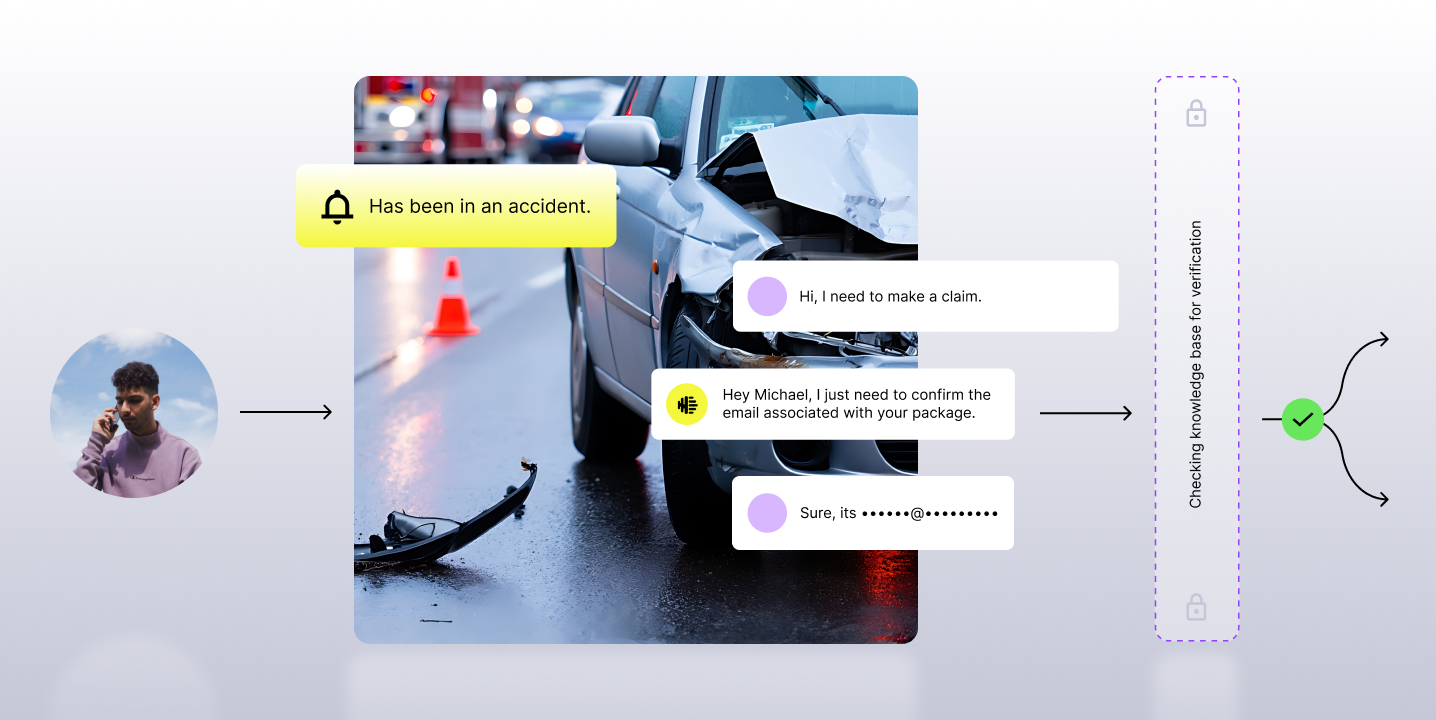“We began asking, ‘Are we operating as efficiently as we could? Are we staying current? Where can we improve?’” says Director of Collections Lamar Nevels.
“We needed better visibility into how our agents were handling calls and to be able to respond quickly to what they found,” says Nevels.
Seeing the full picture
To bring consistency and scale to its QA process, SFS implemented Observe.AI’s Post-interaction AI. The solution enables the company to review every customer call instead of the previous sample of 10 to 20 per agent each month.
“You need a product like Post-interaction AI to handle QA at scale,” notes Nevels. “The Auto QA tool allows us to process 100% of our customer interactions, so we can look for specific things. Are agents sticking to scripts? Are we having the right conversations with our customers based on the status of their account?”
This level of visibility helps QA teams respond quickly to risks, ensure compliance, and prioritize critical conversations, such as those involving customers at risk of repossession. With key call behaviors automatically evaluated, the teams can reallocate resources to more strategic efforts.
“Before, we spent a lot of time just trying to catch issues,” shares Nevels. “Now with Auto QA, we’re spending more time addressing them by coaching our agents, identifying patterns, and supporting long-term improvements.”
Coaching based on actual data
Managers use detailed performance data to coach agents based on specific behaviors, instead of assumptions.
To further tailor coaching, SFS partnered with Observe.AI to review collections calls, grouping agents into performance quartiles based on how often they successfully collected payments. The lowest-performing group received coaching based on the behaviors of top performers.
A later review showed that overall collection rates had increased by 9.7% to 67.3% over eight months. The lowest-performing agents improved their results by 72%, contributing to an estimated $8.7 million in recovered payments. Total net recovered payments reached $6.2 million across all quartiles.
Small changes, big returns
With better insight into calls, managers can now coach agents on more than just tone and timing. They can address how well agents listen, what solutions they offer, and whether they’re preserving customer relationships. For example, they can identify missed opportunities where an agent asked for payment but failed to offer a customer assistance program to an eligible borrower.
“We can listen to those calls and coach the agent: ‘You did your best to collect money, but this customer was eligible for a program. Let’s talk through how you could have handled that differently,’” says Nevels.
This kind of coaching not only improves outcomes but also helps maintain trust. “Just because someone had a tough time doesn’t mean they’re a bad person,” he adds. “It’s about helping them navigate their situation, and once they’ve satisfied their loan, you want them to come back and be a customer again.”
Driving ownership and accountability
Agents are also taking greater ownership of their performance. Using the Observe.AI platform, they can review their calls and evaluate themselves.
This self-awareness, combined with regular coaching, has created a culture where performance improvement feels more collaborative than top-downPreviously, the company’s quality assurance (QA) process involved reviewing just a handful of calls per agent each month. This was no longer enough to keep up with the growing volumes of calls.
New tools are supporting this culture. For example, Observe.AI’s Screen Recording allows managers to observe how agents navigate systems during calls, helping them address technical and communication issues.
Nevels also sees strong potential in Real-time Agent Assist, which tracks whether agents are completing key actions during calls. “Over time, this kind of reinforcement helps agents build better habits, especially during onboarding,” he notes. “The more they see something, the more they do it—it becomes a habit.”
Another tool being rolled out is Knowledge AI. It is expected to give agents quick access to policy and product information without needing to pause a call or flag down a manager.
Looking ahead, Nevels envisions even more potential for AI to drive better and faster decision-making across SFS. “We’re excited about what’s ahead and how else Observe.AI can support us.”













